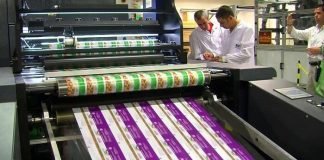The launch of the new Vegan and Plant-Based certification schemes highlights the growing importance of eco-labels in the food industry. The last few months has already seen new certification schemes being introduced for sustainable sourcing, upcycled ingredients, and green products. Ecovia Intelligence questions the long term implications of the eco-labelling trend.
FoodChain ID has just introduced its Vegan, Vegetarian, and Plant-Based labels in the US market. With a surge in consumer demand for plant-based foods and absence of legal definitions, the aim is to provide some uniform standards for such products. The Vegan Society and ProVeg standards (V-Label) are already highly established in the European plant-based food market. Launched in 1990, the Vegan Society trademark is the most established, present on over 47,000 products.
Coconut products are benefiting from high consumer demand for plant-based foods. November saw the introduction of the sustainable coconut charter, believed to be the precursor to a sustainable coconut standard. The Sustainable Coconut & Coconut Oil Roundtable was set up in 2019. Similar to the Roundtable for Sustainable Palm Oil (RSPO), it aims to strengthen supply chains for coconuts. Almost 20% of all palm oil is now produced according to the RSPO standard; the RSPO label is now present on a wide range of food and personal care products.
New standards are emerging that cover sustainable sourcing and biodiversity. In July, Native Organic Products became the first food company to get the Union for Ethical
BioTrade certification for ethical sourcing. The ‘Sourcing with Respect’ label is given to products that have sustainable use of biodiversity in the supply chain. The Wildlife Friendly Certification Scheme is already present in the US; the label is given to products that help conservation, protect key species, and support local economies.
In November the Upcycling Food Association published its draft certification. The Upcycling Food standard is for ingredients that “otherwise would not have gone to human consumption, are procured and produced using verifiable supply chains, and have a positive impact on the environment.” The UFA Upcycled label will be present on certified food products.
Amazon, the online retailing giant, is also jumping on the eco-label bandwagon. In September, it launched its Compact by Design certification scheme for products that have efficient design / packaging and lower carbon emissions. It also introduced its Climate
Pledge Friendly program to make it easier for shoppers to make sustainable choices. The program covers products that are certified according to 19 external standards, including Fairtrade and Rainforest Alliance.
As will be shown at the Sustainable Foods Summit, consumer appetite for eco-labelled products is clearly growing. Apart from ethical and environmental concerns, another driver is food safety. The Detox Project recently announced that sales of its Glyphosate Residue Free certified products increased by 58% to $204 million this year. Launched in 2017, the label is given to food products that are free from glyphosate residue. The Non- GMO Project launched its butterfly mark for products not containing genetically engineered ingredients in 2010; sales of certified products have gone from nothing to $26 billion within a decade.
Consumer opposition to single-use plastics is leading to new schemes to emerge for packaging. For instance, the social enterprise rePurpose enables companies to calculate their plastic footprint; it has developed a certification scheme and label for plastic-neutral products. In Europe, the plastic-free mark of A Plastic Planet is being adopted by food companies and retailers.
With a growing array of eco-labels that cover the many sustainability aspects of food production, as well as their packaging and environmental impacts, there are questions about the future. Will we see more fragmentation in terms of eco-labels or will there be some rationalization? Will a single sustainability standard emerge that encompasses the disparate and growing number of eco-labels? A wider question is whether consumers will start suffering label fatigue?
Such questions will be addressed in upcoming editions of the Sustainable Foods Summit…
Sustainable Foods Summit North America (Virtual Edition) 25-28th January 2021
Sustainable Foods Summit Asia-Pacific (Virtual Edition) 15-18th March 2021
Organizations involved in eco-labels participating at these summits include Organic Trade Association, Fairtrade International, Rainforest Alliance, Ecocert, Upcycled Food Association, NSF International, Australian Organic, Marine Stewardship Council, Detox Project, Rodale Institute, Demeter USA, etc.
About the Sustainable Foods Summit
The aim of the Sustainable Foods Summit is to explore new horizons for eco-labels and sustainability in the food industry by discussing key industry issues in a high-level forum. The international series of summits now takes place in the major geographic regions of the world.
About Ecovia Intelligence
Ecovia Intelligence (formerly known as Organic Monitor) is a specialist research, consulting & training company that focuses on global ethical product industries. Since 2001, we have been encouraging sustainable development via our services portfolio: market research publications, business & sustainability consulting, technical research, seminars & workshops, and sustainability summits.
























